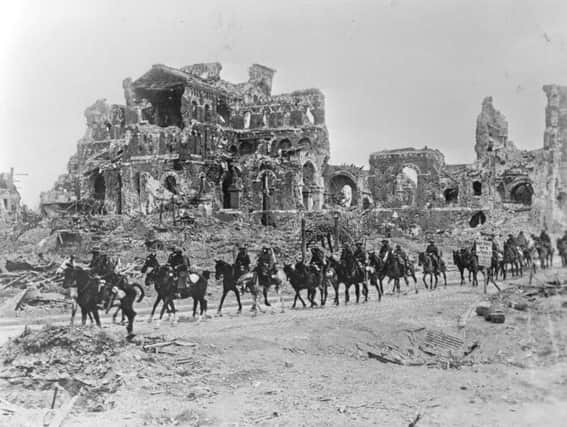First World War '˜an enormous warning' today


While teenagers might question what the conflict had to do with them, the lessons are still compelling today, he said.
“It’s a gigantic lesson into looking beyond fake news and propaganda, about trying to find out the truth from multiple sources, not just believing what you are told from a bunch of old white guys who control the governments,” he said.
Advertisement
Hide AdAdvertisement
Hide Ad“It’s a warning of the catastrophic effects of listening to people who peddle nationalism and racism and inter-state competition.
“It’s a giant warning about what happens when societies sleepwalk because they’re told through patriotism or through duty that they have to do exactly what they are told … and it results in catastrophe … millions of people died.
“Europe, the Middle East, parts of Asia were ripped apart and we are still trying to put that puzzle back again.”
The TV presenter and historian – who father is BBC journalist Peter Snow – added: “On a basic level, it’s a warning that sometimes everything isn’t OK.
“You need to take this stuff seriously because in the past decisions have been made, mistakes made, signals sent, people have gone to war almost by accident assuming the other side won’t step up.
“And tens of millions were killed and wounded and traumatised for the rest of their lives.”
Snow has several ancestors who were involved in the First World War, including his great-great-grandfather David Lloyd George, who was prime minister during that period.
He said he had a great-uncle who fought on the front line and another family member was Sir Thomas D’Oyly Snow, an infantry general, with “thousands of men” dying “under his command”. Snow said he also had ancestors who were doctors near the front lines during the First World War and “would have seen the most hideous things”.
Advertisement
Hide AdAdvertisement
Hide AdHowever, with documents around from the time, there was a chance the memory of the conflict would not die out, he said.
“The pictures are out there, you can hear the sources, you can see the men suffering. You can ask them from beyond the grave and they will tell you what it is like. They will tell you the price they paid.
“The suffering was unimaginable, we owe it to them not to forget that,” he said.
Snow said the war was a lesson in “fake news”, adding: “We should reject politicians when they try to sow that narrative amongst us … That’s potentially really dangerous.”